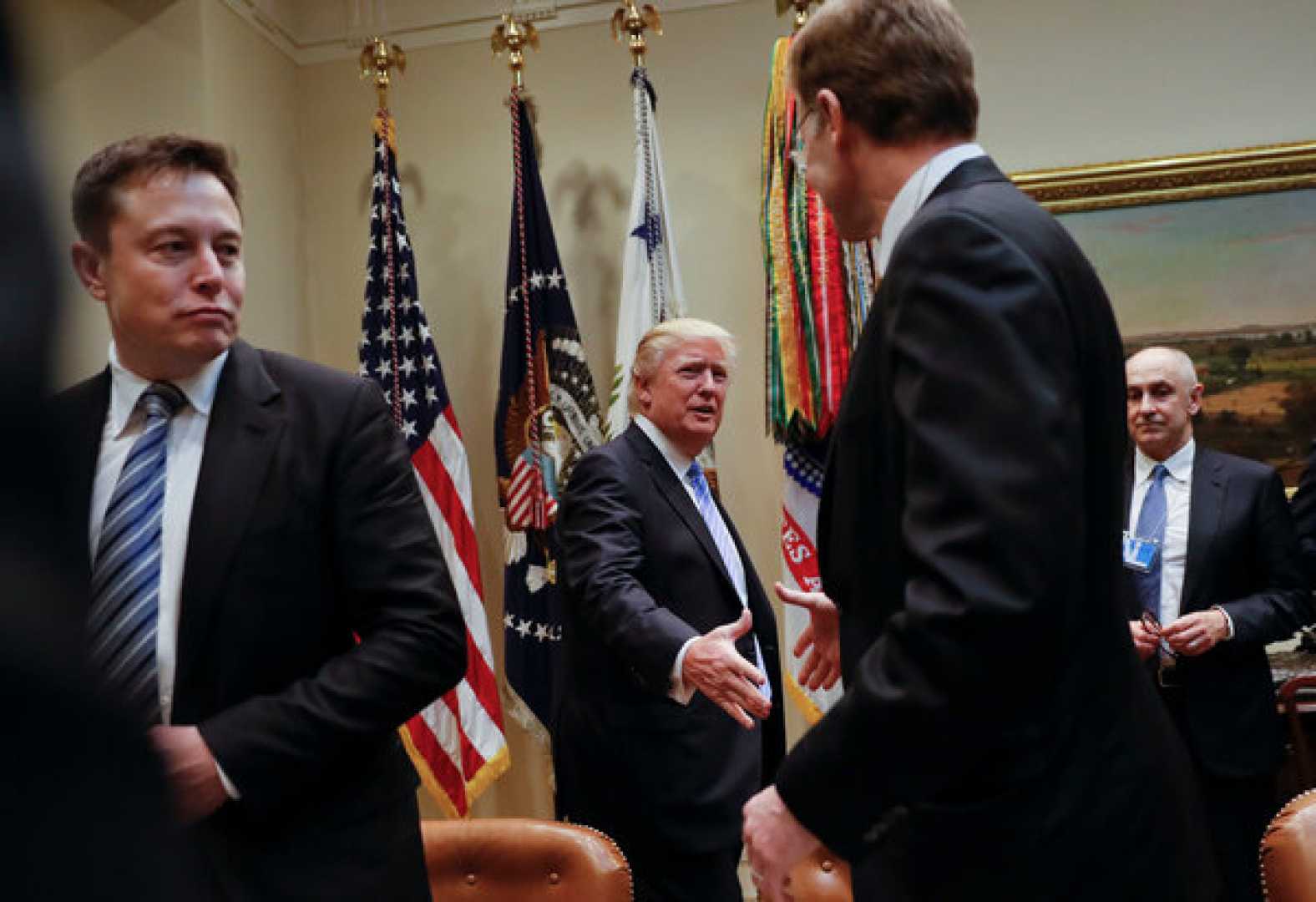Business
Musk Urges Trump to Reconsider Tariffs, But Appeals Fall on Deaf Ears

ISTANBUL, Turkey (AP) — Tesla CEO and tech billionaire Elon Musk made direct appeals to U.S. President Donald Trump over the weekend, urging him to reverse newly imposed tariffs on imports, but was met with resistance, according to a report by the Washington Post.
This exchange not only highlights a significant divergence between Musk and Trump but also occurs amidst economic uncertainty following the initiation of a 10% baseline tariff on all imports to the United States, coupled with higher duties on goods from several other countries.
Musk, who has served as an informal adviser to Trump, expressed particular concern over tariffs that he argues could negatively impact his electric vehicle company’s sales and overall economic conditions. Speaking virtually during a congress of Italy‘s right-wing League Party in Florence, he advocated for a zero-tariff policy between the U.S. and Europe, emphasizing the need for international trade cooperation.
“I hope it is agreed that both Europe and the United States should move, ideally in my view, to a zero tariff situation, effectively creating a free trade zone,” Musk stated during the congress.
Despite Musk’s efforts, the White House has not shown indications of reversing its tariff strategy, with Trump reaffirming his plans and threatening further increases. “Sometimes you have to take medicine to fix something,” the president commented regarding the stock market’s reaction to the tariff announcements.
The implications of the tariffs could be significant, with economists warning that they might reignite inflation and potentially push the U.S. closer to a recession. This scenario poses a serious risk for the current administration, which has been trying to address rising living costs for American families.
As of Monday, Tesla’s stock was trading at $233.29, reflecting a decline of more than 42% since the start of the year. The decrease comes as the company grapples with its own internal challenges and heightened scrutiny of Musk’s leadership of the newly established Department of Government Efficiency.
Musk has previously criticized the tariffs, calling their impact on Tesla “significant.” In an ongoing dialogue about tariffs, he has made social media posts criticizing Trump’s economic advisor, Peter Navarro, and referenced the late economist Milton Friedman’s principles regarding free trade. Musk’s brother, Kimbal, also publically denounced the tariffs, labeling them a “permanent tax” on U.S. consumers.
As the trade debate unfolds, it remains to be seen if Musk’s appeals will have any long-term influence on U.S. economic policy or affect Tesla’s market standing.












